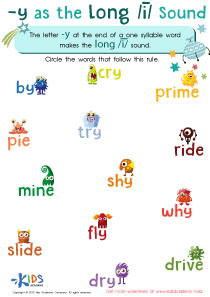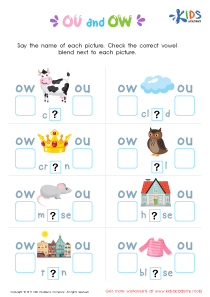Vowel Recognition Long Vowels Worksheets for Ages 4-5
4 filtered results
-
From - To
Introducing our "Vowel Recognition Long Vowels Worksheets for Ages 4-5," designed to make learning fun and engaging! These worksheets help young learners grasp long vowel sounds through interactive activities that enhance phonemic awareness and reading skills. Each page features vibrant illustrations and simple exercises, ensuring kids stay motivated and excited about learning. Perfect for preschool and kindergarten students, our worksheets support early literacy by providing a solid foundation in vowel recognition. Ideal for both in-class and at-home practice, these worksheets foster confidence and mastery in reading, setting the stage for lifelong learning success.
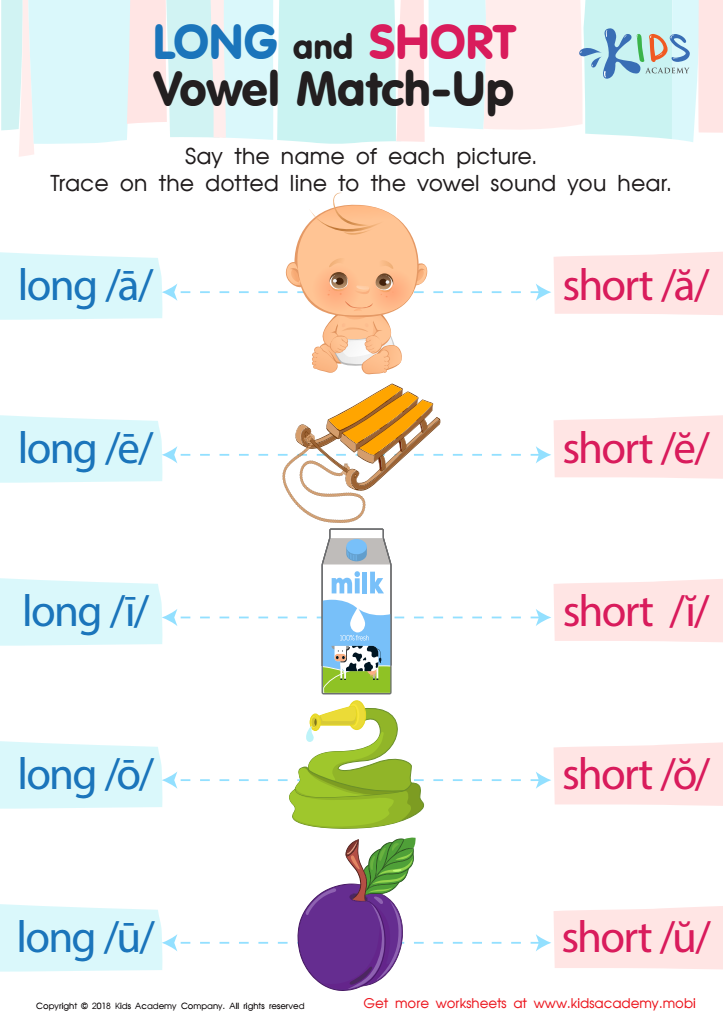

Long and Short Vowel Match up Reading Worksheet
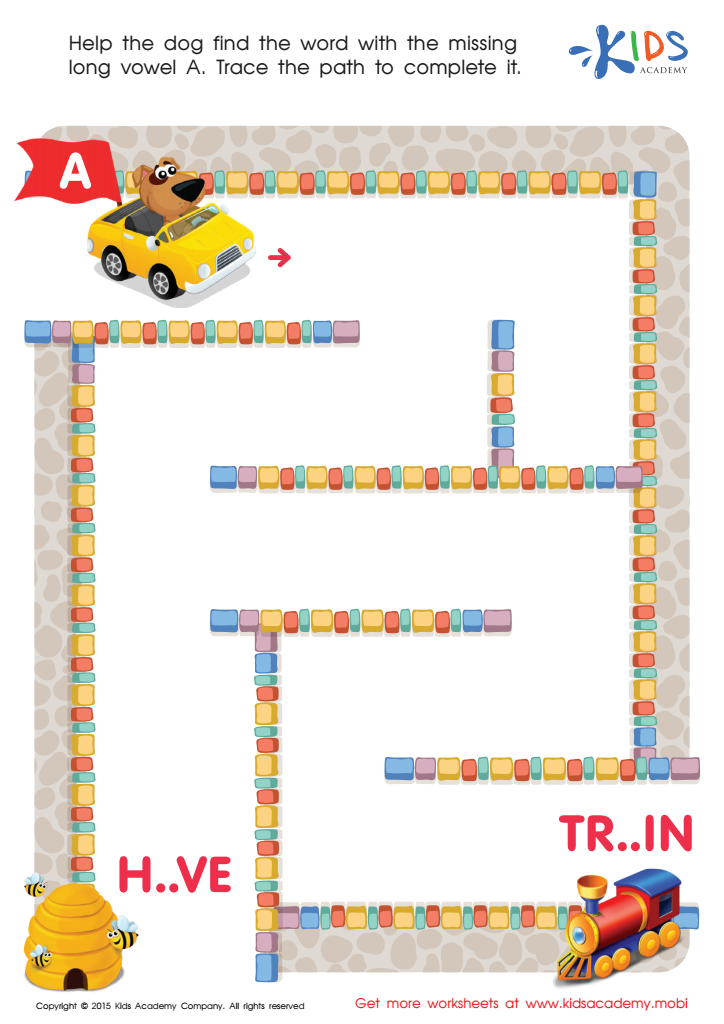

Long Vowel Sound A Worksheet
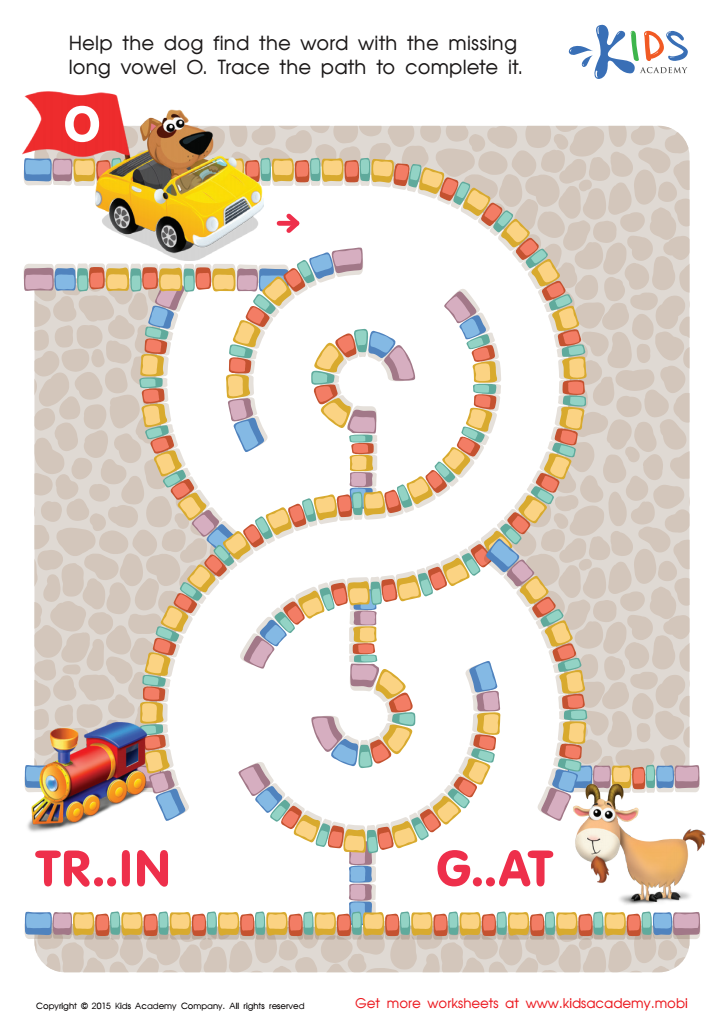

Long Vowel Sound O Worksheet
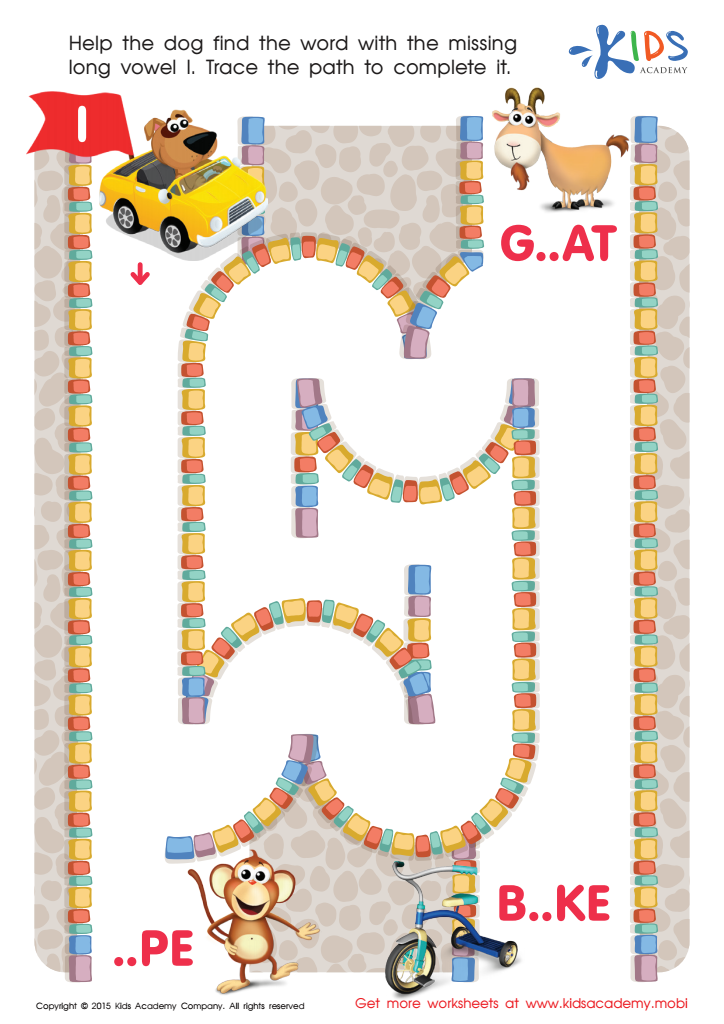

Long Vowel Sound I Worksheet
Vowel recognition, particularly long vowels, forms a cornerstone in early literacy development for children ages 4-5. Understanding long vowels—a, e, i, o, u—significantly improves a child's ability to decode words and begin reading confidently. Here’s why parents and teachers should prioritize this:
Early recognition of long vowels enables young learners to grasp basic word structures and phonetics, making the transition to reading smoother. For instance, knowing that 'cake' has a long 'a' sound versus the short 'a' in 'cat' helps kids decode new words independently. This recognition strengthens phonemic awareness, crucial for accurate word pronunciation and spelling.
Moreover, early mastery of vowel sounds fosters enthusiasm and confidence in young readers. Children feel empowered as they iterate through simple, yet essential reading exercises and storybooks. This encouragement forms a positive feedback loop, promoting an enduring love for reading.
Teachers and parents are both key in providing supportive, vowel-centric activities. Engaging games, songs, and reading sessions offer interactive and fun strategies to reinforce these skills. Consistent practice not only lays the groundwork for reading fluently but also paves the way for improved academic performance across disciplines, as many subjects require competent reading abilities.
In summary, nurturing long vowel recognition early has substantial benefits in paving the path toward fluent reading, building self-confidence, and inspiring a lifelong appreciation for learning.
 Assign to My Students
Assign to My Students






